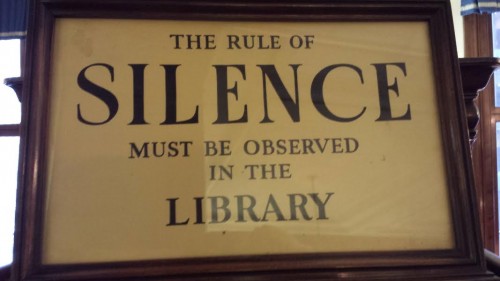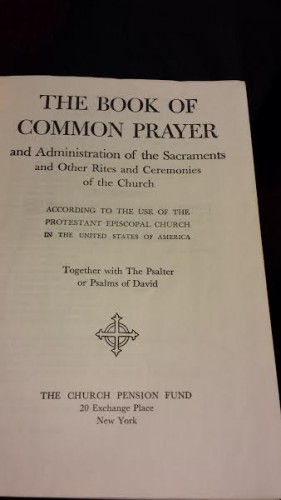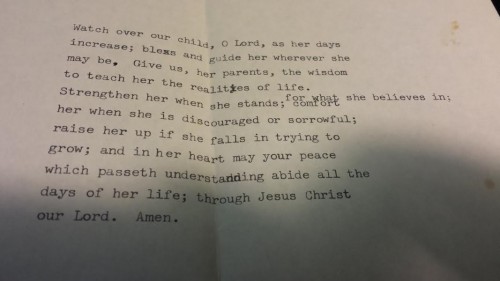Last Friday I was the MC for our first Midwest Business and Markets Conference. It was a great day, and Zen went over it pretty well in this post.
The day before, Thursday the 6th, I had a few hours to kill so I worked out and walked all around the Union League Club of Chicago. The place is like a museum.
Of greatest interest to me was the library.

It is an old school room, where they are still using the Dewey Decimal System. It reminded me of days long gone, when I used to have to go to the library in my hometown of Rockford, IL or at school at U of I and use the Dewey system to find out where texts were that I needed.
The ULCC library isn’t that large, so I just strolled around looking at all of the books and magazines. They have a giant signed book collection of the people who have spoken there, as well as many rare volumes under plexiglass. There were a couple of old guys who were sleeping in the soft leather chairs. It was QUIET in there and the only audible sounds were guys pecking away at their keyboards and the turning of pages.

I sort of enjoyed this quiet, as my life doesn’t afford much quiet time with work and kids and wife and farm and all the rest.
After a while I grabbed an unusual volume (to me), and below you can see the title page:

Basically, this offers a prayer (or a few) for every day of the year, including holidays and other special events. The book was printed in the thirties, and had a calendar for the prayers extrapolated out to 2013.
Some of the prayers were interesting to me, as I don’t really know squat about the Episcopalian religion. I also read a few Psalms. It brought back a few memories as when I was a child I was raised Baptist and we were forced to memorize many of the Psalms (in the King James Version).
The books in the library could be checked out by ULCC members and they used the old school cards in the front of the book, stamped with the date it needed to be returned. The prayer book had been checked out a total of once, in 1993. That may have been the last time it was touched, besides to be moved or cleaned.
Most importantly, when I opened the volume, a note fell out into my lap.

Watch over our child, O Lord, as her days increase; bless and guide her wherever she may be.
Give us, her parents, the wisdom to teach her the realities of life.
Strengthen her when she stands for what she believes in; comfort her when she is discouraged or sorrowful; raise her up if she falls in trying to grow; and in her heart may your peace which passeth understanding abide all the days of her life; through Jesus Christ our Lord. Amen.
After reading some of the prayers and Psalms, I carefully folded the letter, placed it back in the book and put the book back on the shelf.
Cross posted at LITGM.
Cool place. I enjoyed walking down the stairs and getting a look at each floor.
Ah-ha! This must be that right-wing #WarOnWomen stuff I keep reading about.
Michael – that is War on Womyn ™
“I don’t really know squat about the Episcopalian religion… as when I was a child I was raised Baptist…”
Then you know way more squat about the Episcopalian “religion” than you think you do.
Kirk – interesting. But we as Baptists didn’t have any sort of prayer book or recitations in the services. It was all “free form” for lack of a better word.
(Deleted by Dan).
PenGun has missed out on the Quaran.
Dan,
Right: but the basics of Christianity (Protestant or half-Protestant) are certainly all there.
Kirk – indeed.
I have always loved the language of the Book of Common Prayer – I spent a year going to the High Episcopal services at Yongsan AB (for the purely superficial reason that the Episcopal service was a short walk down the hill from the AF female barracks, and the Lutheran service was a bus-ride away in the off-post housing area). The pure beauty of the prose – and that of the King James version of the Bible have informed English prose ever since. It’s a cultural thing, to be appreciated, at least as much as the religious sentiments.
The King James Version of the Holy Bible, is included in Columbia University’s great books curriculum. David Denby wrote about it in his Great Books.
http://www.amazon.com/GREAT-BOOKS-David-Denby/dp/0684835339/ref=la_B000APJMUY_1_1?s=books&ie=UTF8&qid=1394773819&sr=1-1
Good God – a library that asks for silence. Almost a miracle.
The King James version (more properly, the Authorized Version) owes a lot to the leadership of that most excellent Anglican, Lancelot Andrewes. In addition, though perhaps none of the wording of the Anglican Book of Common Prayer comes directly from Andrewes, the spirit is very much his, as can be seen by perusing his book of private devotions side-by-side with the aforementioned BoCP. Amazingly, perhaps, this tone has persisted down to the current revision.
Andrewes wrote one of the most memorable bits of Eliot’s Journey of the Magi.
Dearieme,
Which bit?
‘A cold coming we had of it,
Just the worst time of the year
For a journey, and such a long journey:
The ways deep and the weather sharp,
The very dead of winter.’
You’ll see that Eliot put quotation marks around it. It was part of an Andrewes’ sermon, or so we were told at school fifty years ago. I don’t suppose the fact has changed.